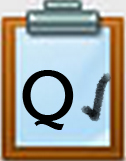Q3 Employability: Vocabulary
Key Vocabulary
Apprenticeships: Apprenticeships are practical career training experiences in real-life settings.
Career and Technical Education (CTE): Career and Technical Education (CTE) includes traditional and hands-on learning experiences specific to a career.
Communication Skills: Communication skills are the ability to share your thoughts and ideas clearly while being mindful of how others may receive your message and to understand what others are saying.
Critical Thinking: Critical thinking involves carefully analyzing information and ideas to understand them better, make smart decisions, and wisely solve problems.
Employability: Employability are attributes that help a person gain employment and succeed in their position.
Enthusiasm: Enthusiasm is displaying excitement and energy about something you are doing, which makes others feel interested and positive too.
Hard Skills: Hard skills are career-specific knowledge and learned skills needed in a particular job. Examples include a college education or trade training.
Networking: Networking is making new connections with people who can help you in your career or job by talking to them, sharing ideas, and building relationships.
Problem-Solving: Problem-solving is discovering ways to fix problems or find solutions when things do not go as planned by thinking through the issue and trying different ideas.
Professionalism: Professionalism means behaving seriously, respectfully, and appropriately for the job. It also means being on time, dressing neatly, and doing your work well.
Soft Skills: Soft skills are character or personality traits that can be applied to any career. Examples include problem-solving and time management.
Teamwork: Teamwork is when a group of individuals work well together to reach a common goal by sharing ideas, helping each other, and getting along.
Play the interactive Quizlet Game: Direct link
Competencies & Standards
MITECS Michigan Integrated Technology Competencies for Students, and
1. Empowered Learner
a. Connect their learning needs, strengths and interests to their goals and use technology to help achieve them and reflect on their progress.
3. Knowledge Constructor
a. Use effective research strategies to find resources that support their learning needs, personal interests and creative pursuits.
c. Curate information from digital resources using a variety of tools and methods to create collections or artifacts that demonstrate meaningful connections or conclusions.
d. Build knowledge by actively exploring real-world issues and problems, developing ideas and theories, and pursuing answers and solutions.
6. Creative Communicator
a. Choose the appropriate platforms and tools for meeting the desired objectives of their creation or communication.
c. Use digital tools to visually communicate complex ideas to others.
d. Publish or present content that customizes the message and medium for their intended audiences.
Websites and Documents
21T4S Documents & Quizzes




